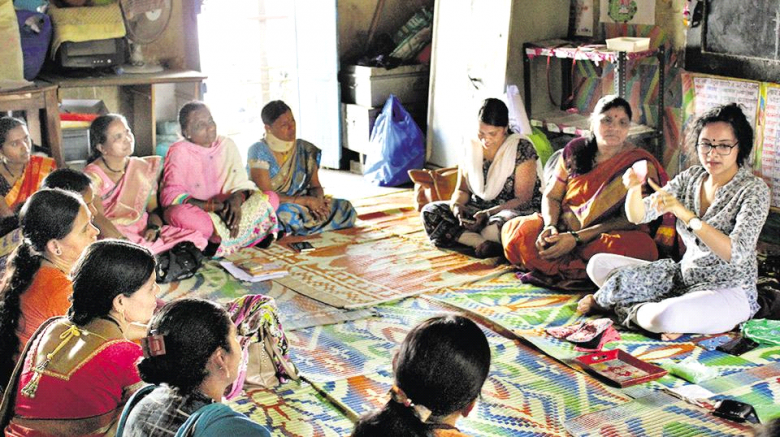While the loud appeals to get more women to use sanitary napkins serve welfare and commercial interests, a group of young women from Pune are raising important questions about the costs that women’s bodies and the environment have to bear as a consequence of this practice.
The teenaged founders of The Project Amara have been trying to make women move away from sanitary napkins towards safer and ecologically sustainable options like menstrual cups, cloth pads and biodegradable pads, ever since they came together for a school community impact project in 2016.
“We dispose around 432 million sanitary napkins annually in India alone. Each sanitary napkin has the equivalent of four plastic bags inside it. It takes about 800 years to degrade. Imagine the waste load we are generating.” says Patwardhan.
The journey of a sanitary napkin, from manufacturing to disposal is hazardous, the founders discovered during their research. “Sanitary napkin companies are not required to disclose the materials used in the manufacturing process. Many of the ingredients used in pads release traces of dioxin, an organic pollutant, which can cumulate over the years and stay in body’s fat cells. From rashes and irritation to toxic shock syndrome, long term exposure to sanitary pads and tampons can cause a range of health problems in women,” Mehta explains.
Lack of proper disposal also means health hazards for waste pickers and dumping in landfills. “The rules require sanitary pads to be disposed of as medical waste. However, even if it is incinerated, it releases toxic fumes in the air. So there is really no safe disposal mechanism for pads,” observes Arjunwadkar.
“We all had our own struggles but once we got used to them, menstrual cups set us free. Made of medical grade or platinum grade silicon, the cups come in different sizes and can be used over 4-5 years safely, if sterilised properly after each cycle,” says Dalmia.
Having sold around 180 cups themselves so far, and also acting as an important bridge between menstrual cup manufacturers and users, The Project Amara estimates to have already reduced India’s sanitary napkin waste by 14 tonnes.
The Lancet review on menstrual cups
The highly rated medical journal Lancet recently published the first review and meta-analysis of girls’ and women’s experiences of menstrual cup, based on international studies. Following are some of the key insights from the review:
•Menstrual cup is a safe option for menstrual management.
•Menstrual cups were infrequently mentioned in online educational materials on puberty and menstruation for adolescent girls; the lack of information appears to be global.
•Information on menstrual cups should be provided in puberty education materials.
•Policy makers and programmes can consider them as an option in menstrual health programmes.
•The adoption of a menstrual cup required a familiarisation phase and peer support seemed to be important for uptake in low-income and middle-income countries.

